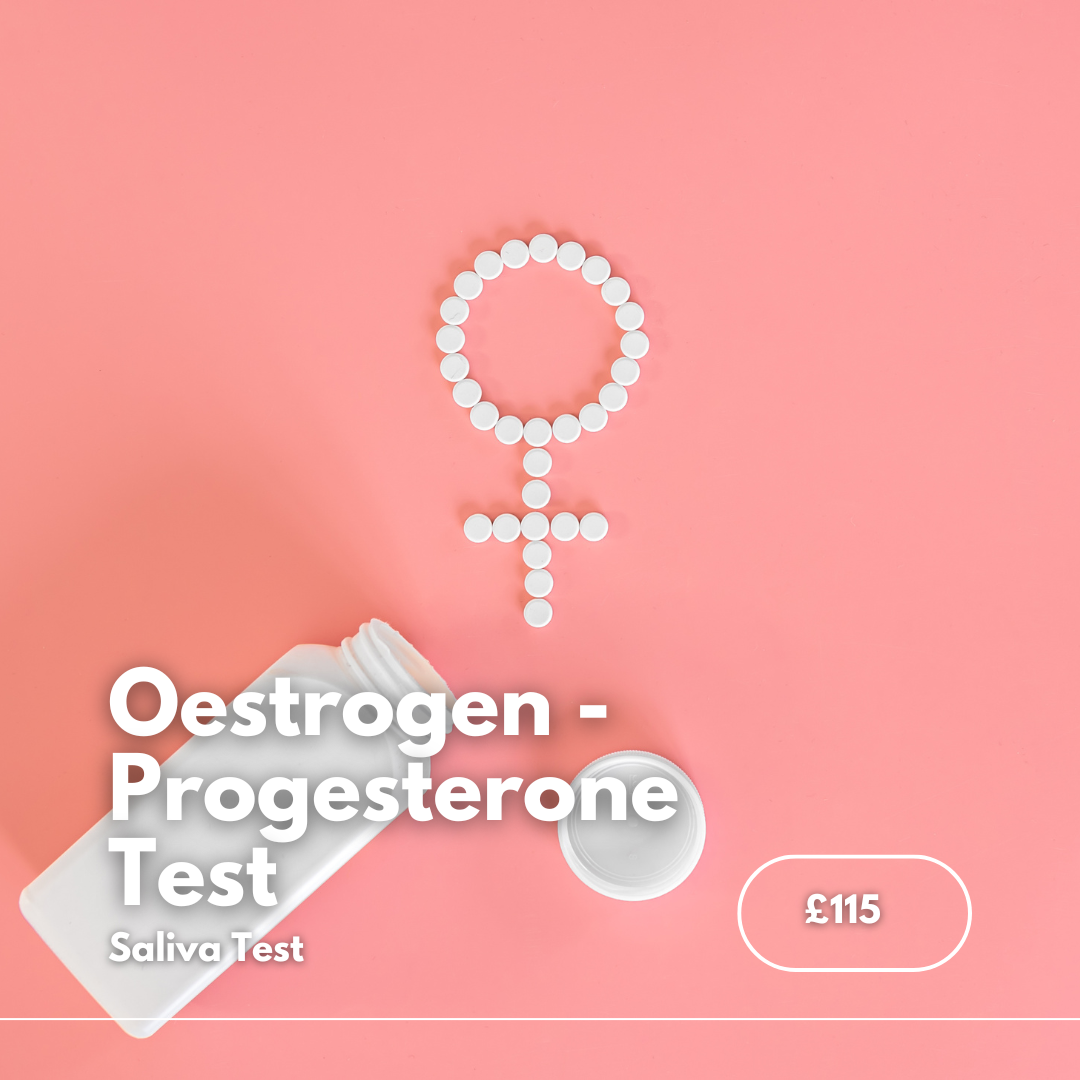
Are You Unsure Which Test You Need?
Male Hormone Blood Test - Finger Prick Bloods
Male Hormone Blood Test - Finger Prick Bloods
The Male Hormone Blood Test offers an accessible way to assess testosterone and related androgenic hormones through a finger prick blood sample collected at home. It’s ideal for investigating symptoms associated with low testosterone, such as chronic fatigue, reduced libido, depression, decreased muscle mass, or poor workout recovery. Results support hormone balancing strategies and men’s health optimisation.
✅ Evaluates testosterone and key markers of male hormone health
✅ Useful in assessing androgen deficiency, fatigue, libido & strength loss
THIS TEST IS ONLY AVAILABLE FOR UK DELIVERY
You will be asked to fill out a patient form at checkout which will give us more information on your symptoms, current medications and supplement intake.
Lab Test Results Only - no support = £130
Lab Test Results & Personalised Written Report with Supplement List = £150
Lab Test Results & 30 Minute Zoom Call = £170
Lab Test Results & 30 Minute Zoom Call & Personalised Written Report with Supplement List = £190
Test suitable from age 18 years and over.
Check your levels of male and adrenal hormones that could be affecting your sex drive, mood, muscle mass, and energy levels, with our at-home male hormone blood test.
The symptoms of a male hormone imbalance include difficulty getting or keeping an erection (erectile dysfunction), loss of interest in sex (low libido), loss of muscle mass, an increase in abdominal fat, mood changes, lack of energy, and difficulty sleeping.
The good news is that there are many ways you can improve your overall health, which could help keep your hormones balanced. These include a targeted supplement protocol with our team can assist you with.
There's a maximum level of testosterone that this test can detect. If you take medications or supplements that boost testosterone, your level might exceed this limit. But, providing your sample is sufficient, we can dilute it to measure even higher levels. So, this limit is unlikely to affect your results.
What hormones are tested?
Testosterone
Testosterone is a hormone that causes male characteristics. For men, it helps to:
Regulate sex drive
Control bone mass
Distribute fat
Support muscle mass and strength
Produce red blood cells and sperm
Testosterone is produced in the testicles of men and, in much smaller amounts, in the ovaries of women. Testosterone levels in men naturally decline after the age of 30, although lower than normal levels can occur at any age and can cause:
Low libido
Erectile dysfunction
Difficulty in gaining and maintaining muscle mass
Lack of energy
Although women have much lower amounts of testosterone than men, it is important for much the same reasons, playing a role in:
Libido
Distribution of muscle and fat
Formation of red blood cells
All laboratories will slightly differ in the reference ranges they apply because they are based on the population they are testing. The normal range is set so that 95% of men will fall into it.
For greater consistency, we use the guidance from the British Society for Sexual Medicine (BSSM) which advises that low testosterone can be diagnosed when testosterone is consistently below the reference range, and that levels below 12 nmol/L could also be considered low, especially in men who also report symptoms of low testosterone or who have low levels of free testosterone.
Free testosterone - calc
Most testosterone circulating in the blood is bound to proteins, in particular SHBG and albumin; only 2-3 % of testosterone is free and available to cells. This test uses an algorithm to calculate the level of free or unbound testosterone in relation to total testosterone, SHBG and albumin.
FSH
Follicle Stimulating Hormone (FSH) is produced in the pituitary gland and is important for women in the production of eggs by the ovaries and for men in the production of sperm. In men, FSH acts on the seminiferous tubules of the testicles where they stimulate immature sperm cells to develop into mature sperm.
LH
Luteinising Hormone (LH) is produced by the pituitary gland and is important for male and female fertility. In men it stimulates the production of testosterone.
Oestradiol
Oestradiol is a female steroid hormone, produced in the ovaries of women and to a much lesser extent in the testes of men. Low oestradiol can cause osteoporosis.
Free androgen index
The free androgen index (FAI) is a calculation used to determine the amount of testosterone which is free (unbound) in the bloodstream. Most testosterone is bound to proteins sex hormone binding globulin and albumin and is not available to interact with the body's cells. The FAI is a calculation based on the ratio of testosterone and SHBG and is a measure of the amount of testosterone that is available to act on the body's tissues. The free androgen index is used in women to assess the likelihood of polycystic ovarian syndrome. In men, free testosterone gives a better indication of testosterone status.
Prolactin
Prolactin is a hormone which is produced in the pituitary gland and plays a role in reproductive health.
Adrenal Hormones:
DHEA Sulphate
DHEAS is the sulphated form of DHEA, a hormone which is produced by the adrenal glands and is responsible for male characteristics in both men and women. DHEAS gradually declines from the age of 30 onwards.
Proteins:
Albumin
Albumin is a protein which is made mainly in the liver. It helps to exert the osmotic pressure which holds water within the blood. It also helps carry nutrients and medications and other substances through the blood and is important for tissue growth and healing. Albumin also carries hormones around the body, therefore measuring the amount of albumin in the blood can help us calculate how much hormone is available to your tissues.
SHBG
SHBG (sex hormone binding globulin) is a protein which transports the sex hormones (testosterone, oestrogen and dihydrotestosterone (DHT)) in the blood. Hormones which are bound to SHBG are inactive which means that they are unavailable to your cells. Measuring the level of SHBG in your blood gives important information about your levels of free or unbound hormones which are biologically active and available for use.
FAQs
Q. How do you support me with my results?
In ADDITION to your lab report we provide the following options which are INCLUDED in the package prices:
A) Follow up personalised written report produced by our clinical team highlighting dietary and lifestyle advice plus links to supplement protocols, specific doses and any further testing requirements included. We use the patient information you provide us at checkout along with your results to compile personalised action points for you.
OR
B) Follow up 30-minute video call to discuss your results and answer any questions you have. Once the lab has completed your results you will be sent these via email with a link to book a time and day online. You will also then be given the option to upgrade your 30-minute call to a 45-minute call for an additional £30 if you wish. During the call your practitioner will explain the results in more detail and what they mean for you. After your call you are sent a personalised list of supplements & the dose your practitioner advises with links to purchase from our supplements store. This is for your convenience. You are of course welcome to purchase supplements elsewhere. You will also be provided with a list of follow up tests should this be required plus a copy of your recorded zoom call which you can download and keep.
OR
C) Both Zoom call and written report with personalised next steps (Zoom call is first and written report follows).
Q. How to take the sample?
Prepare for your Male Hormone Blood Test by following these instructions:
- Take your sample between 6am and 10am
- Avoid nipple stimulation or sexual activity for 24 hours prior
- Avoid heavy meals and strenuous exercise beforehand
- Do not use fingers that handled hormone gels in the past 4 weeks
- Do not take biotin supplements for 2 days before the test (unless prescribed – consult your doctor)
Q. What is the process?
Your kit is shipped via Royal Mail. Use the included instructions to take your finger prick blood sample, then return it using the freepost bag by dropping it in any postbox.
Results are expected within 6 working days. A Lab GP will review and comment on your results. Our team will also provide guidance on how to improve any levels that are out of range through diet, supplements, and lifestyle changes.








